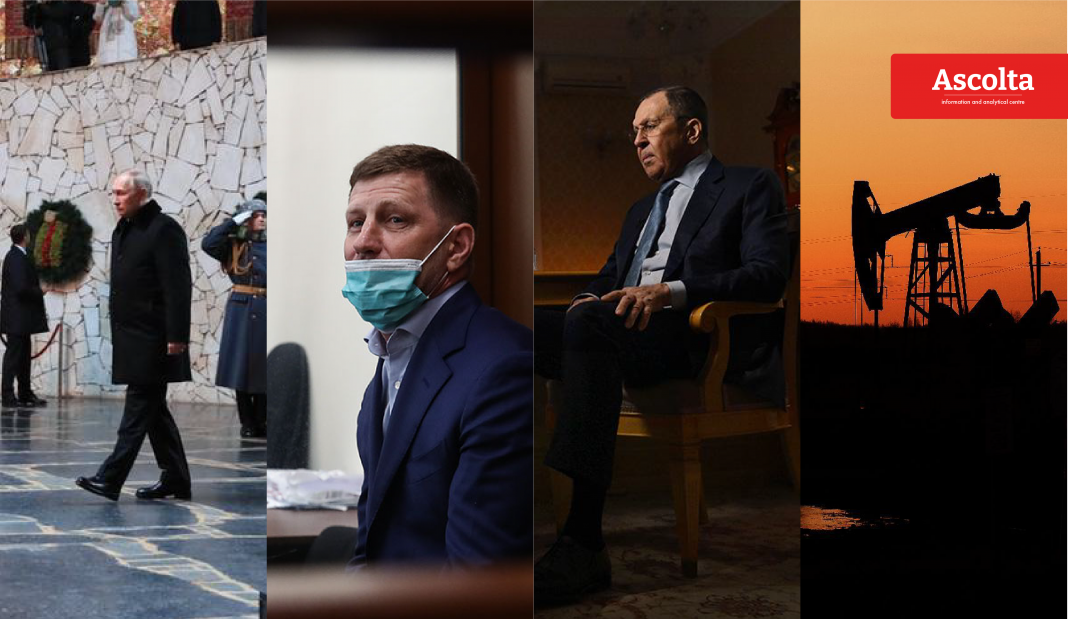This report describes the key events that had an important impact on the political, economic and social processes inside Russia.
Based on the results of the past week, the following key events can be brought to attention:
- Russia continues raising the stakes in its negotiations with the West. Statements by Putin and Lavrov suggest that the negotiating window remains open, but terms are becoming less realistic on both sides. Many sources confirm Russia’s readiness to intensify hostilities in Ukraine, aiming to further advancement in the Donbas and, possibly, the country’s south. At the same time, such actions will demonstrate the failure of the negotiation process. At the same time, Moscow’s expectation of reduced Western support for Ukraine has not materialised, which has become a complicating factor for the Kremlin.
- Moscow faces new restrictions on energy supplies to Europe. On the one hand, this factor did not take Putin by surprise and was predicted as early as the summer of 2022. On the other hand, the bet on increasing exports to Asian countries did not fully meet expectations: India increased its imports of oil products from Russia but is in no hurry to raise prices, understanding the state of affairs in the energy market. At the same time, the position of Saudi Arabia remains an important factor, which soon may seriously affect the oil market and become Putin’s trump card.
- Putin is getting more and more active in the election campaign. Using memorable dates important for Russian propaganda, he relays the essential accents of the upcoming election campaign: Russian traditionalism, a turn towards Asia, the importance of historical events for Russia, and the restoration of “former greatness” (imperial ambitions in action). In parallel with Putin’s activation, the work of the team of Sergey Kiriyenko, traditionally responsible for elections, is also noticeable: the total liquidation of the opposition and all possible channels of communication with Western structures, the suppression of regional threats and the expansion of the electoral field (rejuvenation of Putin’s voter).
During January 30th– February 5th the following topics were the most relevant for Russia:
1. Vladimir Putin’s speech in Volgograd
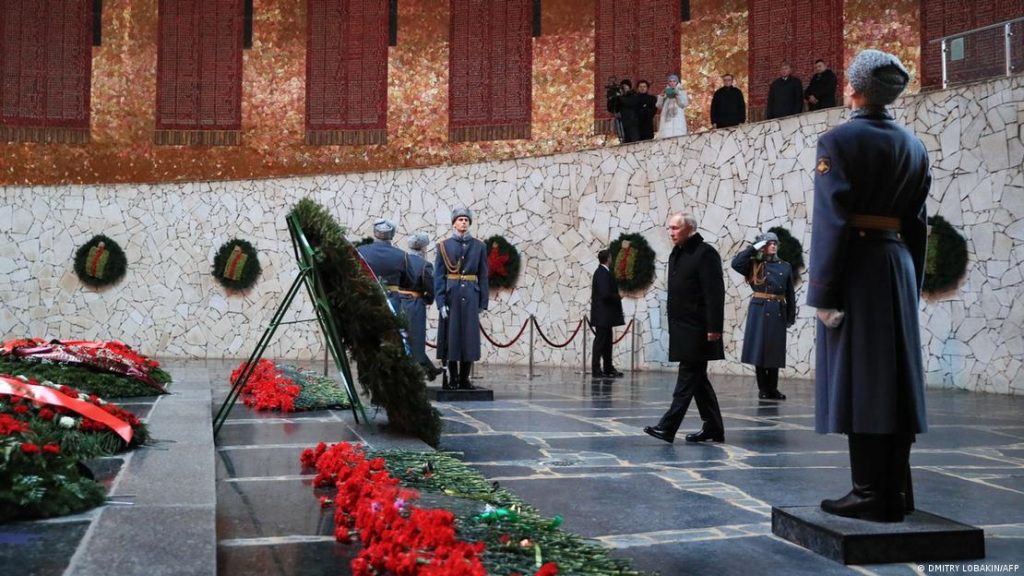
On Thursday, February 2, on the day of the 80th anniversary of the end of the Battle of Stalingrad, Vladimir Putin visited Volgograd, where he met with the Governor of the Volgograd Region Andrey Bocharov, visited the Battle of Stalingrad memorial museum on Mamaev Kurgan, and also performed at a gala concert in commemoration date. Initially, many sources suggested that Putin was planning a visit to Volgograd at the beginning of the week, but this information was not confirmed.
Putin’s key theses:
- “200 days near Stalingrad, on the ruined streets of the legendary city, two armies fought to the death, and the one that was strong in spirit won.”
- “Now, unfortunately, we see that the ideology of Nazism – already in its modern guise, modern manifestation – again forms direct threats to the security of our country; we are again and again forced to repulse the aggression of the collective West.”
- “Unbelievable, but true: we are again being threatened with German Leopard tanks, on board of which there are crosses, and again they are going to fight with Russia on the soil of Ukraine with the hands of Hitler’s descendants, the hands of Bandera.”
- “We know that despite the efforts – official, corrupt in essence – propaganda of Western elites unfriendly to us, we have many friends all over the world, including on the American continent, in North America, in Europe.”
- “But those who draw the European countries, including Germany, into a new war with Russia and all the more irresponsibly declare this as a fait accompli, those who expect to win a victory over Russia on the battlefield, apparently do not understand that a modern war with Russia would be completely different for them. We do not send our tanks to their borders, but we have something to answer, and using armoured vehicles will not end the matter. Everyone should understand this.”
Outcomes and outlook:
It is noteworthy that despite the importance of this event for Russian propaganda, Putin’s speech was rather short and carried practically no new messages. Reading the text of the speech, Putin repeatedly lost his way; in some places, improvisation was noticeable. At the same time, the gleam on his face betrayed excessive excitement, which is not inherent in Putin. In this case, we are most likely not talking about a fatal illness or other factors threatening Putin’s life. Despite some statements and theories, sources close to the Kremlin continue to assert that nothing threatens the health of the Russian president. Instead, Putin’s behaviour speaks of evident irritability with the actions of the West and the desire to speed up the solution to the Ukrainian issue.
Putin was either not ready for the West’s decision on the “tank tranche”, or he was counting on a different outcome of non-public multi-level negotiations.
At the same time, it is essential to pay attention to some accents in his speech. First, drawing analogies to the events of World War II is a blatant attempt to justify the war in Ukraine by accusing the West of repeating history. Putin is trying to create the image of a victim who is forced to defend himself by attacking Ukraine. This technique is not new but has recently become louder and louder.
Indicative refers to Russia’s allies, according to Putin, “including those on the American continent, in North America, in Europe.” Thus, an attempt is being made to break the stereotype that the whole world unanimously supports the West and Ukraine. Of course, this thesis was used by Putin many times, except perhaps without specifying the expense of North America.
Notably, Putin continues to assert that Germany, like the rest of Europe, is being drawn into the war. Thus, he again tries to strengthen the thesis that the US and Britain are fighting against Russia with the forces of other states.
The most quoted thesis from Putin’s speech is a statement about the use of retaliatory measures in response to the supply of heavy weapons to Ukraine: “We have something to answer, and the use of armoured vehicles will not end. Everyone should understand this.” It is unlikely that we can talk about nuclear weapons since Putin’s actions and statements recently demonstrate more war weariness and a desire to end it than a readiness to unleash a third world war.
At the same time, according to available information, Russian troops may be preparing an enhanced offensive in the coming days (it is likely that we can talk about February 16 or another date in mid-February). An important point: over the past week, Putin has already held two meetings with the permanent members of the Security Council of the Russian Federation (January 27 and February 3). At the same time, during the last meeting, the main topic was the fight against terrorism. At the same time, the FSB of the Russian Federation stated that the Ukrainian side was preparing terrorist acts in Kramatorsk to organise a provocation against Russia.
If such a plan is implemented, it will take place under maximum information pressure to strengthen the thesis that Russia is allegedly defending itself in this way and not attacking.
2. The trial of the former governor of the Khabarovsk Krai (region) Sergey Furgal
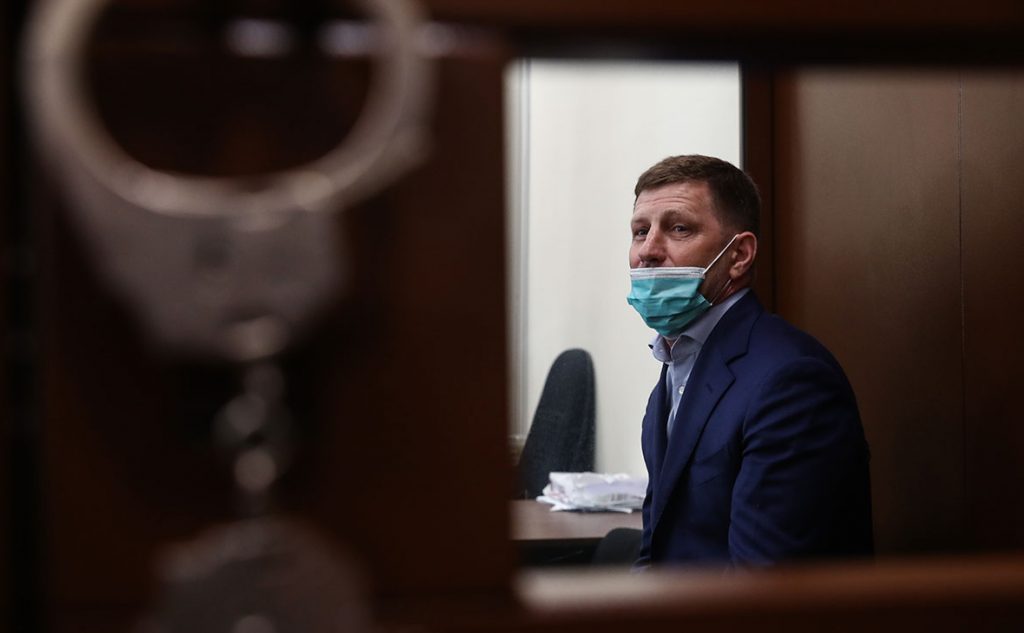
On February 2, a jury found the former governor of the Khabarovsk Krai, Sergey Furgal, guilty of organising the attempted murder of businessman Alexander Smolsky, as well as organising the murders of businessmen Evgeniy Zoria and Oleg Bulatov.
Brief:
On July 9, 2020, Governor Sergey Furgal was detained in Khabarovsk by investigators of the Investigative Committee (IC) and FSB officers on suspicion of organising murders and attempted murders of entrepreneurs committed by an organised criminal group in 2004-2005 on the territory of the Khabarovsk Territory and the Amur Region. On the same day, the Main Directorate for the Investigation of Particularly Important Cases of the Investigative Committee charged him with organising murders.
Furgal was transferred to Moscow. On July 10, the Basmanny Court of the capital took him into custody (the period of detention was repeatedly extended).
At the end of 2021, it became known that several more criminal cases were opened against Furgal and other persons on fraud charges, organising a criminal community, legalising property acquired by unlawful means, and illegal business activities. These criminal cases were initiated in June 2020 and November 2021. None of the defendants pleaded guilty.
According to the investigation, members of the criminal community created by Furgal committed several thefts in Moscow and the Khabarovsk Krai. The total amount of damage amounted to more than 3 billion rubles. Amurstal, SME Bank, SME Corporation, and Global Metcorp Ltd were recognised as victims and civil plaintiffs in the case.
All the so-called economic cases against Furgal are combined into one proceeding.
Outcomes and outlook:
In fact, in 2019-2020, one of Russia’s first and most massive prevalent protests took place in the Khabarovsk Krai, to which the Kremlin had to respond with particular rigidity and promptness. Moscow was not ready for the “Furgal factor”, but so that it would not happen again in other regions, it was necessary to apply already familiar methods with, apparently, absolutely lawless actions.
To understand why Furgal was not simply removed from the election, which became a cause for serious concern in the Kremlin. As a result, it is worth going back to 2018. Then the governor was chosen by two neighbouring regions. Primorsky Krai and Khabarovsk. Even though the city of Khabarovsk was then officially named as the capital of the Far Eastern Federal District and all the key offices of large enterprises, the embassy, the Ministry for the Development of the Far East and others were located there, Vladivostok, course, considered the most significant city of the macroregion in the political, economic, military sense.
Summer and autumn were electorally difficult. The “Crimean consensus” has exhausted itself, and serious questions arose about the results of the March elections of Vladimir Putin (and even in the presence of a decent opponent, Pavel Grudinin from the Communist Party of the Russian Federation, and his subsequent persecution). Finished off the population pension reform.
As a result, in many regions of Russia, where there were failures in clearing the field, surprises unpleasant for the federal government happened on Single Voting Day. In the more strategically important Primorye, the second round of elections was scheduled a week after the first. In Khabarovsk – in two, which is more usual. There is a certain phenomenon in Russian politics according to which the candidate from the opposition traditionally wins in the second round. Even if he is a “technical candidate”, who, judging by his completely inactive election campaign and statements in the style of “I am ready to be first deputy”, was Sergey Furgal (by the way, who entered the second round from a leading position).
Further events around the figure of Furgal became a kind of verdict on Sergey Kiriyenko and his team of political technologists in the Presidential Administration. True, Kiriyenko was able to resist, drawing several conclusions from the current situation.
The decision of the court and the actual completion of the Furgal case indicates that the work on the mistakes was carried out with high quality. In the forthcoming elections, first of all, the presidential ones, the clearing of the field and the selection of opponents will be treated much more attentively. Moreover, even now in Russia, the struggle in the political technology field has intensified, where the old-timers of this profession are increasingly losing the competition to young colleagues, being left without state orders and contracts from the Presidential Administration.
Sergey Furgal does not face life imprisonment, as the statute of limitations has already expired. It will become known on February 6 how long the public prosecutor will ask for, but lawyers say that they will appeal against the guilty verdict (there is no doubt that it will be exactly that). At the same time, the “economic” case will be heard separately.
3. Interview with the Minister of Foreign Affairs of the Russian Federation Sergey Lavrov
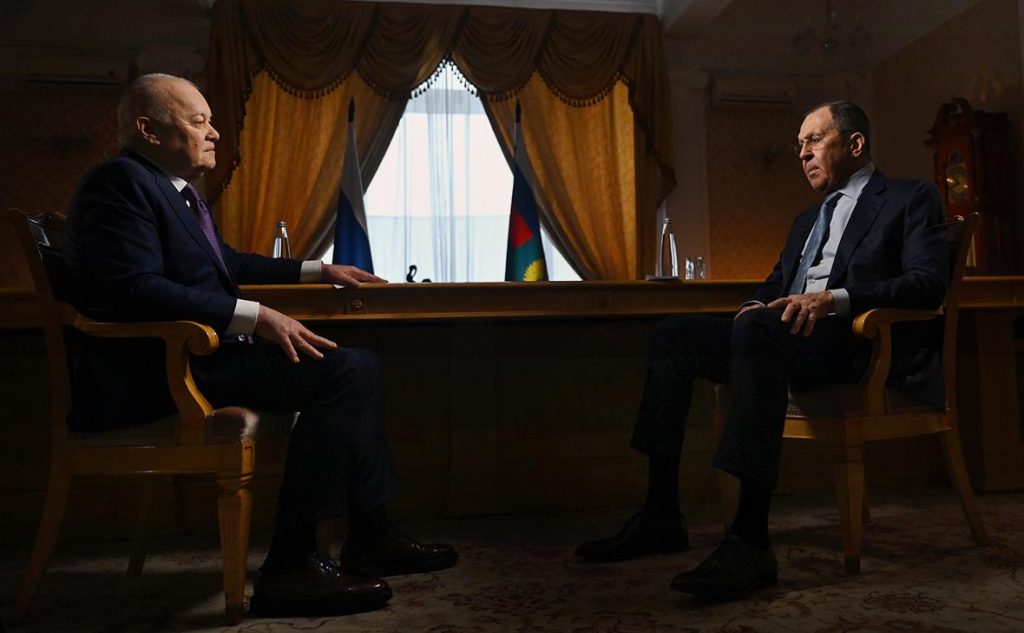
On Thursday, February 2, The Minister of Foreign Affairs Sergey Lavrov gave a detailed interview to propagandist and director general of the Russia Today media group, Dmitry Kiselev.
Key theses:
- “We are observing not even attempts, but the persistent, stubborn line of the West, led by the United States, to never end all this [the war in Ukraine]. Until they consider that any threats to their hegemony have been eliminated.”
- “At this stage, we are acting in the same way as our Western colleagues promised: there must be victory on the battlefield. This is their formula. They refused to negotiate, forced the Kyiv regime to withdraw from the negotiation process, and at the very moment when, at the end of March 2022, there was an opportunity to end it politically.”
- “If we are now striving to move the artillery of the Ukrainian armed forces to a distance that will not pose a threat to our territories, then the more long-range weapons are supplied to the Kyiv regime, the further they will need to be moved away from the territories that are part of our country.”
- “Scholz said that NATO will never fight against Russia, and his Minister of Foreign Affairs A. Berbock said they are already “friendly” fighting against Russia. Pentagon spokeswoman S. Singh said there is nothing to worry about if Kyiv starts bombing Crimea. Either they turn themselves on or don’t understand what they are talking about.”
- “The President of the European Commission, U. von der Leyen, said that the war’s outcome should be the defeat of Russia and that it could not restore its economy for decades. Is this not racism, not Nazism, not an attempt to solve the Russian question?”
- “The United States and all the Westerners, whom the Americans have crushed under them, depriving the European Union of the last signs of at least some kind of independence, is, as you know, “big democrats”. But they understand democracy as their right to impose their understanding on everyone else. So as soon as you talk to them about the need for democratic approaches to international issues, they show no enthusiasm.”
- “We are also preparing some reporting on what happened this year, what we found out. This is not only the US military biological programs, from which they are trying to disown (they lie, as always) and not only the direct participation of the United States in the Nord Stream explosions. US Deputy Secretary of State V. Nuland confessed. Many things need to be remembered and shown by what methods the United States achieves its hegemony.
- “Two or three weeks ago, the European Union signed a declaration with NATO, which says that the EU will do everything that the North Atlantic Alliance needs. Americans achieve their goals. This needs to be explained more clearly. All this is happening in Europe, but plans are already “stretching” to Asia.”
- “Now this role [of anti-Russia] is being looked at by Moldova. First of all, they were able to put a president at the head of the country by quite specific methods, far from freely democratic, which itself is “rushing” into NATO. M. G. Sandu has Romanian citizenship and is ready to unite with Romania and, in general, for almost everything.”
- “I won’t go into details, but one of the countries that the West wants to turn into another ‘anti-Russia’ is Georgia.”
- “For a constructive focus on “creation” to prevail in this region, we are promoting the “three plus three” format (three South Caucasian countries – Georgia, Armenia, Azerbaijan and three neighbouring countries – Russia, Turkey, and Iran). The first such sighting contact took place. We will continue.”
- “Europeans are engaged in “self-discipline”. All questions about who will make the decision have been announced. They signed a Declaration of Cooperation with NATO, according to which they will provide everything that the North Atlantic Alliance needs, including the territory of countries that are not members of NATO, if it is necessary to transfer weapons of any kind closer to Russian borders. All this has been said.”
- “‘Points of Common Ground’ is a modest description of bilateral relations [between Russia and China]. It is already written in the declarations that although we are not creating a military alliance, they are superior in quality to military alliances in the classical sense because they have no restrictions, limits and forbidden topics. They are the best for all the years of existence of the USSR, China and the Russian Federation.”
Outcomes and outlook:
It is noteworthy that recently extended interviews with Lavrov began to appear with enviable regularity. In each of them, he tries to repeat the well-known theses about Russia’s positions concerning Ukraine, the United States, Europe, the world order and Russia’s place in the new world system.
Drawing parallels, it is worth noting that a similar situation occurred a year ago when Russia sought negotiations with NATO and the OSCE but, as a result, remained dissatisfied with the position of the West. In this case, it is worth paying more attention to some of Lavrov’s statements.
In addition to capping and repeating well-known phrases, Lavrov’s interview was built on an attempt to finalize the official position of the Kremlin and once again convey it to a Western audience. An important point: this position is voiced not by Putin, Medvedev and not by Kadyrov but by Lavrov, the head of diplomacy, which supposedly should be perceived as an attempt to convey a balanced and compromised position.
At the same time, there are few compromises in Lavrov’s statements themselves. He once again says that Russia will not back down on its plans and is ready to go to the end. At the same time, he threatens with a response to the supply of weapons to Ukraine and declares his readiness for the further occupation of Ukrainian territories.
Among the essential points from Lavrov’s interview are forecasting regarding possible new hot spots near the Russian borders. In particular, we are talking about Moldova. Lavrov’s forecasts look especially relevant against the intensification of the pro-Russian opposition in the country and Russia’s accusations of creating a transit zone from Moldova for NATO troops.
Also, an important message is addressed to Germany, which Lavrov accuses not of directly attacking Russia but of being too dependent on the United States. It hints that “we are ready to restore relations, but only if Europe gets rid of American dependence.” In a growing crisis within the EU, such messages may soon become an additional threat.
4. Introducing of prices ceiling on Russian oil products
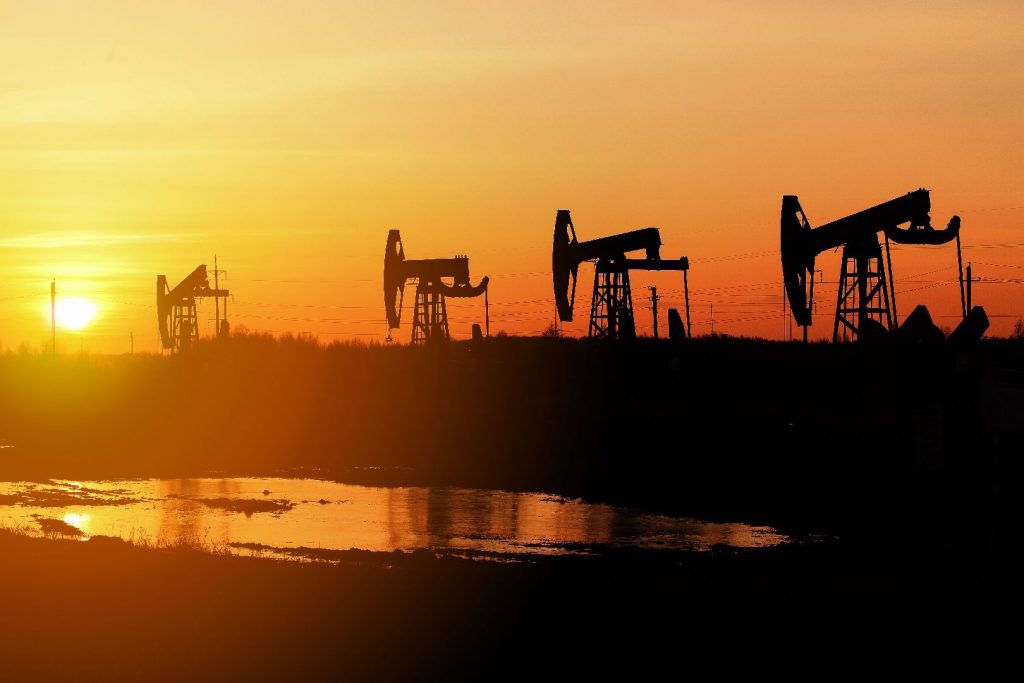
On Friday, February 3, the EU Council approved a price ceiling for petroleum products from Russia at $100 per barrel for gasoline and diesel fuel, as well as $45 for low value-added products. The decision came into force on February 5.
Outcomes and outlook:
On February 5, the European Union introduced an embargo on the supply of petroleum products from Russia, which added to the oil sanctions imposed on December 5, 2022. There is now an almost complete embargo on Russian oil exports. At the same time, the main exception is the established “ceiling” of prices: $100 per barrel of oil products and $60 for oil.
Western media began to actively disseminate information that, according to preliminary estimates, by 2030, Russia will miss about 1 trillion dollars of export earnings, and Russia’s share in the global energy market will be reduced to 13% from 20%.
It is important to note that an exception has been made from the oil embargo for supplies via the Druzhba pipeline; the EU has banned only maritime imports.
At the same time, the introduction of an exception in the form of a “price ceiling” was actively lobbied by Washington to prevent a collapse in Russian exports, a surge in world oil prices and worsening inflation. That is, the state of Russian oil exports directly affects the economy of the West and the United States separately.
At present, the West is waiting for retaliatory actions from Russia. At the same time, it is worth noting that on January 30, Putin had a telephone conversation with the Crown Prince of Saudi Arabia, Mohammed bin Salman Al Saud. According to official data, issues of further development of bilateral cooperation in the political, trade, economic and energy fields, as well as cooperation within the framework of OPEC Plus to ensure the stability of the world oil market, were discussed. Apparently, we should expect that Russia’s response to Western sanctions may follow in a collective format (OPEC+).
It is also known that recently Russia has been actively engaged in the creation of a tanker fleet to circumvent the limitations of the “ceiling” of prices for oil and oil products. Iran owns the largest tanker fleet but cannot use it to its full potential due to Western sanctions. Therefore, the two countries may look for common ways to get out of this situation. Moreover, Russia is actively increasing its energy trade with India and other Asian countries.

